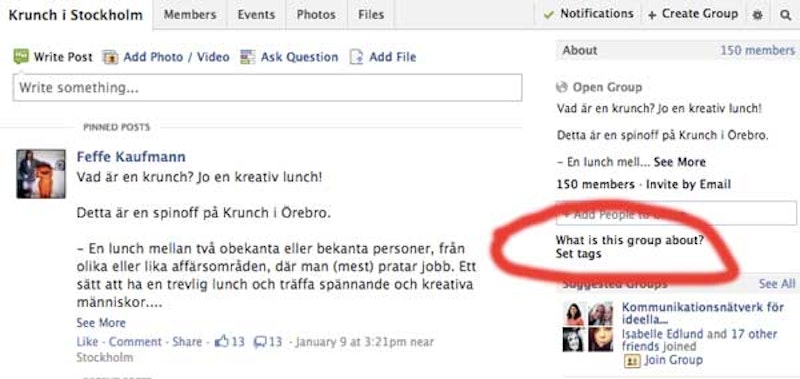I was in a Facebook “tag group,” and had no idea what it meant. Due to the self-containment of these tag groups, information can only be gleaned from interacting with them directly. As a Facebook subculture, the end result is a fascinating look into how not only content but also the medium itself can be used as a language.
Facebook tag groups are often associated with “leftbook,” a presence on the site. Their purpose is simply to be tagged in casual Facebook conversation. One notable example is “Unlike you SJWs, I'm Not Offended and Don't Care at All: a Novella,” self-described as “A tag group for when someone writes a short story's worth of paragraphs explaining how they aren't offended and don't care.” Users on this tag group also collect screenshots of these interactions, which are roundly mocked.
An individual user might join dozens of these groups as they’re often exchanged on Facebook like currency. It’s possible for someone to use a tag group in response to another tag group, leading to an escalation of invoking tag groups to an absurd degree. Tag groups sometimes have a lighthearted tone, playful in their approach. Many of them share common leftbook policies against hate speech, but this is often delivered with the same sense of levity.
Other groups are responses to common social media phenomenon, quick go-to replies with a hint of snootiness. “Sounds like this post is going to be evidence in a future legal case but ok,” displays content that has shadows of criminal threats or behavior that could used in legal cases. “Sounds like you might die but ok.” “Sounds Like You Genuinely Hate Women But Ok,” and other “sounds like X but ok” style tag groups are common shorthand. Many of them point out covert prejudice or unintentionally revealing statements about the poster in question. Some deviate from this, such as “found the incel” and “I will FORCE-FEED this man WASPS until he BEEHAVES,” but many share this common leftbook template.
If anything, this shows the ways that a more socially-conscious youth is using technological tools as a way of discourse. Now there’s an easily accessible means to respond to common prejudices expressed online. This subculture is a far lighter way in responding to awful Facebook behavior, but it serves a vital role in poking fun at all-too-serious Internet nastiness. In an increasingly disillusioned Internet culture, laughing at a depressing reality has tremendous appeal.

